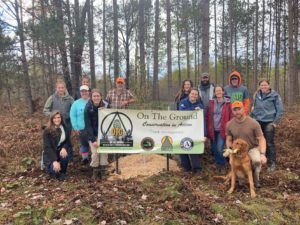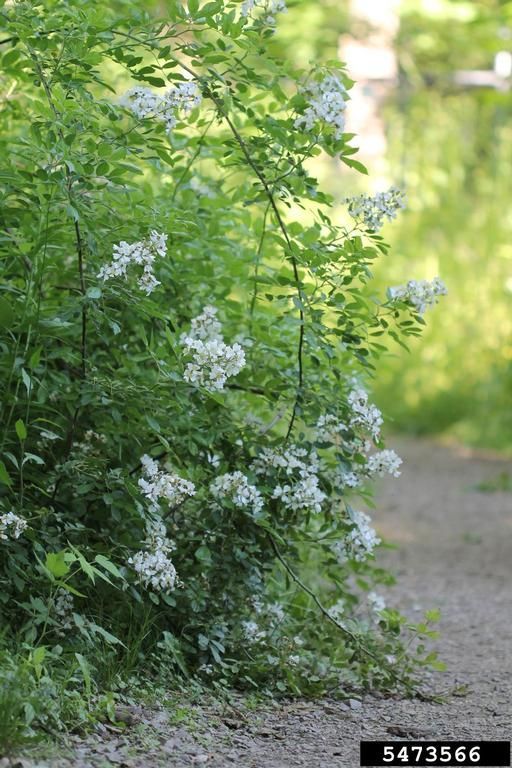OTG Concludes 2021 Fall Field Season with Tree Planting Near Kalkaska
On Saturday, October 16, 2021, 12 volunteers with MUCC’s On the Ground (OTG) program planted, mulched and fenced 52 mature mast-producing trees on public land near Kalkaska.
This was the final OTG event of 2021, and it was the third project that OTG has done in this region in the last twelve months. OTG volunteers planted 93 mature mast-producing trees in October 2020 and built more than 40 brush piles for small game habitat this past March.

OTG Projects are made possible by the amazing volunteers who come out to participate.
Volunteers gathered at 9:00 a.m. last Saturday and went through the opening, placing the trees in pre-augered holes, filling them with soil and mulching them, while being sure not to bury the root collar. Then they pounded in stakes to wrap around protective fencing to prevent harm from browsing.
A mix of differe nt crabapple, hawthorn and serviceberry species were planted. These trees and the fruit they bear will improve habitat for wildlife such as songbirds, ruffed grouse, wild turkey and white-tailed deer.
For the past six weeks, MUCC’s field team has traveled throughout Michigan to engage volunteers in conservation projects that have improved more than one hundred acres of wildlife habitat on public land.
In the last few weeks, we have helped remove woody invasive species in southwest Michigan, planted native wildflowers in the southeast’s oak openings region, and planted over 200 mature mast-producing trees in both the northern Lower Peninsula and southwest Upper Peninsula. We appreciate all of the dedicated volunteers that made these events possible.
While this most recent project brings the 2021 OTG event calendar to a close, the OTG program will be back in early 2022 with a full calendar of events across Michigan that are designed to improve habitat for wildlife and public lands for people.
If you are interested in getting involved with the OTG program in 2022, visit https://mucc.org/on-the-ground/ or contact a member of MUCC’s field team at mlabutte@mucc.org or americorps@mucc.org
The post OTG Concludes 2021 Fall Field Season with Tree Planting Near Kalkaska appeared first on Michigan United Conservation Clubs.
Recent Posts



